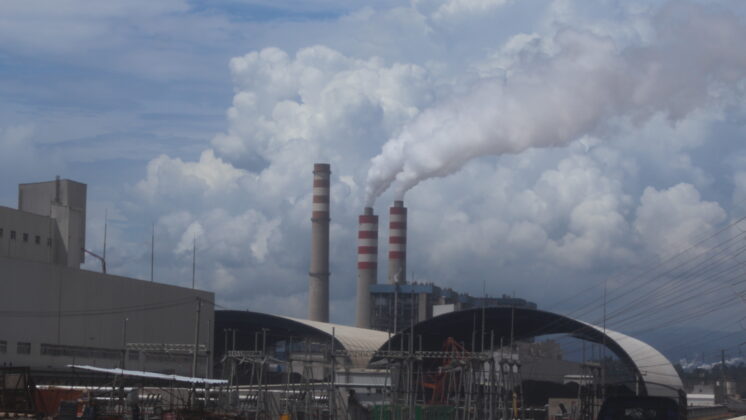As the size of Apple’s cash reserves continues to mount, the company has come under increasing pressure to return more of those reserves to shareholders, through dividends and/or stock buy backs. Billionaire investor Carl Icahn who has acquired large amounts of Apple stock has begun to argue that Apple should return an additional $150 billion to its shareholders. In an open letter to Tim Cook, CEO of Apple, Isaac Shapiro of the Economic Policy Institute and Li Qiang, Director or China Labor Watch are adding another consideration to this discussion: why doesn't Apple use a fraction of these resources to make good on unfulfilled promises to improve the conditions of the workers making its products?
As the size of Apple’s cash reserves continues to mount, the company has come under increasing pressure to return more of those reserves to shareholders, through dividends and/or stock buy backs. The attention became particularly heated in February 2013 when hedge fund manager David Einhorn took up this position. In April, Apple did double its “capital return” program to $100 billion, to be distributed to shareholders by the end of 2015. This step muted the debate, until billionaire investor Carl Icahn began to acquire large amounts of Apple stock and to argue that Apple should return an additional $150 billion to its shareholders. Icahn pressed this case publicly and privately with Apple CEO Tim Cook, including in a letter to Cook just last week. It is in this context that the following letter was sent to Mr. Cook.
Dear Mr. Cook:
Another consideration should take precedence over Apple’s assessment of Carl Icahn’s suggestion that the company return $150 billion to its shareholders through a stock buyback, which would be on top of the $100 billion already pledged to Apple shareholders through the capital return program. This other consideration is much less expensive, yet far more justified.
It has now been more than six years since the harsh working and living conditions faced by the workers making Apple products were first exposed, and 19 months since new findings, including those highlighted by a series of New York Times stories, led Apple to pledge to make dramatic reforms. Some modest reforms have advanced since then, but the public record still suggests labor rights abuses in Apple’s supply chain remain distressingly common and significant.
We offer up for your, and for that matter Mr. Icahn’s, attention this recent summary of the public record, which examined three new investigations by China Labor Watch, and concluded that the new iPhone products are being produced under working conditions that “include widespread abuses of labor laws and common decency, as well as widespread violations of Apple promises and its supplier code of conduct.” It also summarizes findings concerning Apple’s reform promises of early 2012, stating that the available information indicates:
“Apple has not met commitments to ensure that workers in its supply chain receive retroactive compensation for working unpaid overtime, has not ensured promised wage increases, and has not, through the FLA [the Fair Labor Association], provided an assessment of the livable wage standard for its Chinese workers. Apple also has not met its commitment to reduce overtime work hours to the level allowed by Chinese law; it has not even met its less lenient standard of reducing work weeks to 60 hours. Further, Apple has not met its commitment to ensure workers in its Chinese supply chain have a true voice in the workplace. And the more intensive study of working conditions, as undertaken by the FLA, has involved less than one-fifth of the workers in Apple’s supply chain, a figure far short of what Apple had promised.”
In all likelihood Apple could make good on all these promises using only a fraction of the resources Carl Icahn is requesting should go to a buyback. To illustrate, say Apple were to dedicate $15 billion—or one-tenth of the Icahn request—to improve the conditions of the workers making its products. A few billion of that amount could certainly cover all retroactive pay commitments; the promised intensive studies across the supply chain; resources to advance the ability of workers to voice complaints about (perhaps equip them with iPhones and a special app) and negotiate remedies to abuses; and systematic, independent and transparent monitoring to ensure implementation. The remainder could cover much if not all of the promised wage increases for several years or more.
Given the inherent difficulty of obtaining information about the workers in Apple’s supply chain in China, and the ongoing lack of transparency from Apple about the labor rights initiatives it may be undertaking, if any, it is hard to be more precise about what the costs of a full remedy might be. Accordingly, as you have met with Mr. Icahn to discuss his proposal, you should have a public meeting with workers in the supply chain and independent labor rights monitors to discuss the nature and scale of an Apple commitment to remedy labor rights abuses.
As you well know, long-term stockholders in Apple have reaped enormous gains. This is not to judge whether more than the already-committed $100 billion in Apple’s capital reserve program—$36 billion of which has already been allocated in dividends and stock repurchases—should be provided to shareholders, but it is to underscore that the one million workers in your supply chain that are directly responsible for producing your products should be given priority consideration. At relatively modest cost, Apple could fulfill its promises to remedy the abusive living and working conditions many of these workers still face.
In a conference call just a few days ago on Apple’s fourth quarter earnings, you said Apple is “proud to be a force for good in the world beyond our products,” and after referencing areas such as working conditions, the environment, and human rights, said “Apple is making substantial contributions to society.” When it comes to the rights and working conditions of those individuals making your products, this claim is questionable at best. But with just a fraction of what has been or may be returned to shareholders out of Apple’s ample cash reserve, that admirable ambition can be achieved.
Sincerely,
Isaac Shapiro, Research Associate, Economic Policy Institute
Li Qiang, Director, China Labor Watch
Click here for more information on the working conditions facing Apple workers.











